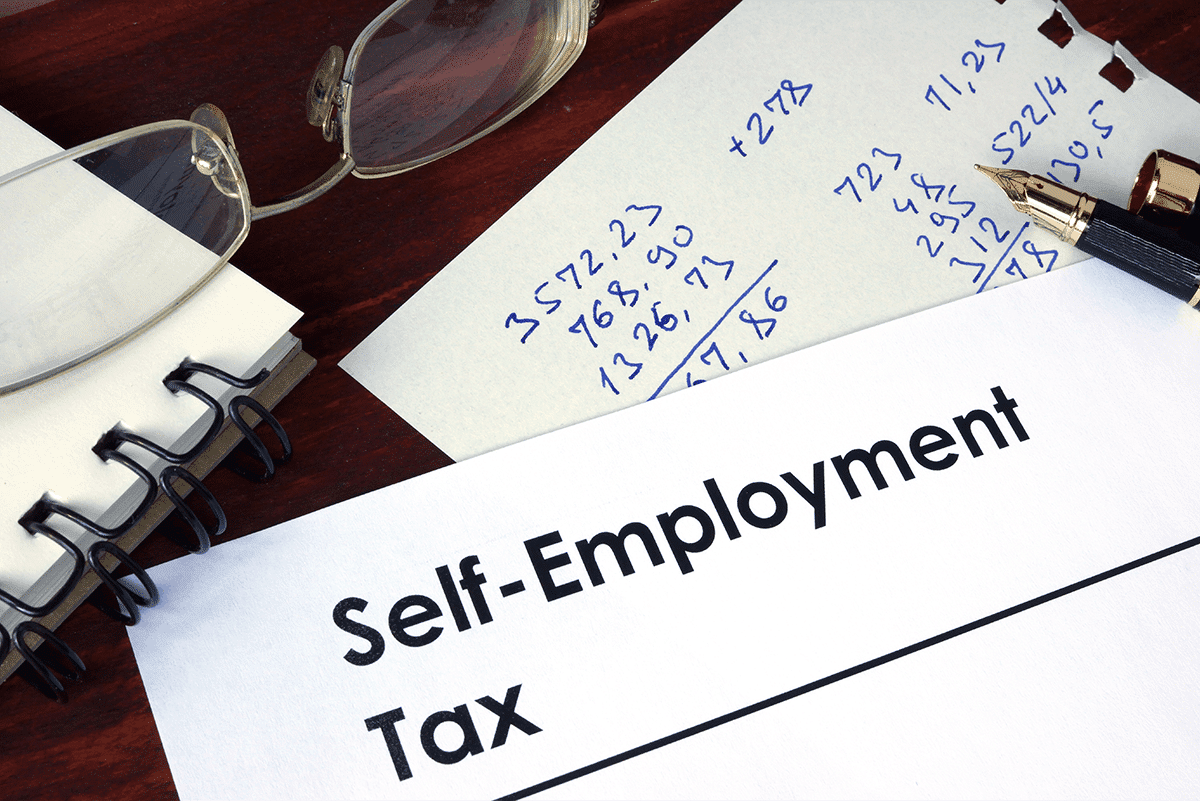Upskilling is a great way to increase your take-home pay. When you work on expanding your skillset, you can earn more money, and you also make yourself more well-rounded for future jobs. It’s a great way to stand out in a competitive job market. As of now, approximately 47% of Canadians live paycheque to paycheque.
The good news is, you can do this in a variety of different ways. A good place to start is by staying updated on industry news, trends, and new developments. Having this knowledge will make you more valuable in your role. If you’re not satisfied with where you’re at in your career, try free and inexpensive ways to upgrade your professional and personal skills.
Why upskill to increase take-home pay?
- Upskilling helps you advance your career and make more money at each stage. Invest time and money in yourself to increase your earning capacity – it will pay off quickly. With increased take-home pay, it will be easier to build your savings and increase financial security.
- Make yourself a more valuable employee. By making greater contributions, you will also strengthen your job security. When you bring real results to the table, your effects get noticed.
- Upskilling doesn’t just help with your current job or take-home pay. Taking the initiative to learn will contribute to your personal growth and confidence as well. Working on your personal development will also make you a more well-rounded candidate. This is very beneficial for roles of responsibility higher up the career ladder.
- It’s a great way to learn more at your own job. You will be able to take on more responsibilities at work. This will, in turn, help you learn more skills, and work your way up more quickly.
Career-related skills to learn
Learning new skills or getting new certifications can be valuable to a current or future employer. It shows that you are committed to your career, and are self-motivated. These are highly desirable qualities across any industry or job description. Depending on your area of interest, and what your career goals are, there are a variety of courses available.
Free skills and certifications
Library resources
Libraries aren’t just about books anymore. Many Canadian public libraries offer online courses, certificate courses, test prep and practice modules, adult learning and continuing education.
There are also different Guided Learning Pathways depending on what skills you want to learn, like computer skills, technical skills or more.
Free coding certifications at freecodecamp.com
This is a great, comprehensive resource for anyone who wants to learn how to code. They have a variety of learning tracks and certifications – all free. They recommend you work on your own projects to create a portfolio. This shows your motivation and skills to prospective employers.
Free marketing and sales certifications at Hubspot Academy
If you aim to work in the field of digital marketing, Hubspot provides free certifications for different types of sales and marketing. You can learn SEO, content marketing, inbound marketing, how to set up a sales funnel for your business, and more!
These are also good avenues to pursue if you’re already in the field and want to take on greater responsibilities at work.
Learn about Google Marketing at Google Skillshop
You can get certifications in Google Ads, Analytics, My Business, Marketing Platform, Youtube and more. If you’re looking to transition to this field, this is good to have on your resume. It’s also useful for learning how to market your small business or side gig.
Project management courses at Project Management Institute
If you’ve already got a few years of experience, you may be looking to upgrade your skills to make the leap to the next step on the career ladder. A useful skill to have is project management qualifications – especially if you’re looking for a position where you have to handle people or projects. Some of the courses are free, and the paid ones may be worthwhile if you’re sufficiently advanced in your career.
A variety of courses on online MOOCs
What’s a MOOC? MOOC stands for “massive open online course”, and provides access to different kinds of learning content from universities and educational institutions from around the world.
For example, there are project management courses for free on edX. You can pay for the certificate if you find something you want to put on your resume!
Here’s a comprehensive list of MOOCs in a variety of domains and industries. The University of Toronto also offers this program via Open UToronto.
Paid Skills and Certifications
Professional certifications at Google Career certifications
Google provides a variety of training programs that can help you qualify for fields that are currently in demand. Their offerings include training in Cybersecurity, Data Analytics, Digital Marketing, IT, and more.
Learn a variety of skills at LinkedIn Learning
There are multiple courses of varying skill levels on LinkedIn Learning. These courses help you improve your job readiness and personal development too! LinkedIn Learning is available for free access via Toronto Public Library. See if your college, institution or local library provides access to these courses.
Learn about patents and trademarks at WIPO Academy
You can learn more about – and get certified in – Intellectual Property and Patent Rights. This is immensely useful, especially if you want to work as a patent clerk, in legal departments that handle patent processes. You could also work in R&D, as research facilities need to go through the patenting process for new developments.
Personal Development Skills to Learn
Improve your communication with Toastmasters
Communication skills are important in almost every field, at all levels. Working on clear communication helps you convey your ideas in a better way, and in a way that is accessible to a variety of people. It will also help you improve your general diction and public speaking skills. Find a club near you at Toastmasters International.
Use your public library
There are so many books on personal development and upgrading your skill set. If you have access via your library or university, you can access a wealth of knowledge on different topics for free.
Learn what you love
If you’re interested in a particular field, either as a hobby or a passion project, it may be worth investing time in it! If you have identified your strengths, you’re already doing great. With any area, you will find more to learn. If you like cooking as a hobby, try to learn more or do a cooking class. If you enjoy yoga, you could get certified as an instructor.
This will not only boost your self-esteem and confidence but may open up new avenues of earning and professional development.
How to verify if a course is worth it?
The courses and certifications we shared earlier are verified and reputed resources. You should always do due diligence before you sign up for a course. You can check how useful a course is by:
- Checking reviews online by other users.
- Looking for information and experiences on unbiased forums online. Reddit and StackExchange have many communities with guidance and information for various domains and expertise levels. For example, if you’re interested in cooking, there are active forums on StackExchange, and Reddit has a cooking subforum, as well as one for beginners!
- Browsing personal blogs for real feedback from users who have a similar approach or goal.
- Reach out to people who have more experience in the field you’re interested in, and ask them for feedback. They would be able to give you a realistic idea of what certifications hold value, and what skills are prized. Use this information to make mindful decisions.
What else can you do to increase take-home pay?
Side hustles and the gig economy
Being part of the gig economy is a great way to supplement your income. While many consider side hustles part of the gig economy, there are also other alternatives. You can do a side hustle in your own field, or with a separate skill set you possess.
Do extra part-time or weekend jobs
Use your evenings and weekends to do extra jobs. While these may be close to minimum wage, it will still increase your annual income. Try to combine these with hobbies so you can earn while having fun!
Get better at your craft
If you’re working in a field classified as skilled labour, this is the option for you. A tradesman or carpenter could try and create more bespoke, detailed, or custom products. This will not only increase your take-home pay but also provide more stability if you’re self-employed. Being proficient at your craft means that you will never be out of work – there will always be customers willing to pay a premium for high quality.
Contribute to RRSPs and pre-tax investment instruments
An easy way to save more is using pre-tax investments. This reduces your taxable income and may even make a difference to your tax brackets. Your gross vs net will look a little less because you’re contributing pre-tax, but it’s a great benefit in the long term.
Volunteer for extra shifts or do overtime
If you work on an hourly wage contract, this is a great way to increase your income. Extra shifts will pay your hourly wage, and it’s a good way to supplement your income, especially in tight months. Overtime will pay a little more than hourly in most cases, so more in your bank account plus your employer will be grateful that you’re taking the initiative!
Freelance work
You can earn more from your existing skill set by taking on more freelance work. Platforms like Upwork and Fiverr provide a way to get clients and provide your skills on an hourly or per-project payment basis.
Look for a higher-paying job
If you’re putting in the work to upgrade your skill set and have the drive and ambition to grow in your career, sometimes it might be a good idea to take matters into your own hands! Look for jobs that pay more and are a good stepping stone to greater goals. Keep working on your personal and professional development, and take charge of your career growth!
What can you do with increased take-home pay?
Once you’ve figured out how to increase your take-home pay, the next obvious question is how to allocate these funds. If you don’t need the increased income to make ends meet, then you may have funds left over at the end of the month. In this case, think of ways to use or invest your extra funds to make your life more comfortable.
- Build an emergency fund. One in 4 Canadians in this survey were not prepared for a $500 expense. That’s a stressful way to live! An emergency fund brings great peace of mind and should be the first thing you build up with your extra income. Three to 6 months of living expenses is ideal, but even $1000 is a great start.
- Pay off your debt. Put your extra income towards paying off your debt quickly. There are many other ways to help do this too, like debt consolidation, debt management, credit counselling, and more.
- Pay off your student loans, or put together an education fund for your kids and loved ones. This will help them get a headstart towards their own savings and investment journey.
- Treat yourself! Recognize your own hard work by spending on things that will make your life easier, better, or healthier. Splurge on a vacation or a show.
- Put money towards smaller savings goals. Just like paying off your debt, knowing that you have money for things like a new fridge, computer or bigger goals like a wedding.
Final thoughts
Breaking out of the paycheque-to-paycheque cycle is a huge milestone. By working on your skills and increasing your income, you’ll get there much quicker. The most important steps are building up your emergency fund, and paying off your debt. From there, continue to grow your funds by savings and investing, and enjoy financial stability.
For help paying off debt quicker and easier contact one of our trained credit counsellors for advice on which debt-relief program would be the right fit for you.










